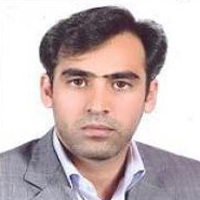Identifying and Analyzing the Effective Factors in Iran`s Urban Land Policies Using MENTAl and MACTOR Models
Urban land policy is one of the important areas of public policy and in some countries, such as Iran, urban land policies and the position of land management have neglected. And this has made it necessary to change attitudes towards urban land and urban land policies in Iran.
The purpose of this research is to Identify and analyze the effective factors in Iran's urban land policies.
The type of research was applied in terms of purpose and descriptive-analytical in terms of research method. It should be noted that the relationship between indicators and actors was assessed by experts in urban affairs has been done by sampling snowballs. Mental and Maker software was used to analyze the data. 15 factors have been used to analyze and evaluate urban land policies in Iran. Using Mantal software, the relationship between variables is evaluated and key factors were extracted. Finally, the key factors influencing Iran's urban land policies as well as the relative power of the actors and their agreement with the goals and priority of each goal were identified from their point of view.
According to the findings of Mental software, 5 key factors influencing urban land policies were identified and the results extracted from Maktor software showed that the dominant actors of the system who had the most impact on Iran's urban land policies; these include the legislature, the Ministry of the Interior, the Housing and Urban Development Foundation.
The results of the research showed that most of the actors agree on the objectives of urban land policies in the first place, given the integrity of the responsible institutions, has been the need to reduce parallel work. In the second place, the improvement of the executive power of the institutions, in such a way that the performance of the institutions is in harmony with the institutions of other sectors finally, the access of information by the institutions has been agreed upon by the creation of a land database.
-
Measuring and evaluating urban sprawl using satellite images and Landscape metrics in Iraq Country (Case study: Al-Diwaniyahcity
Haider Karim Badr Al-Murshidi, Mirnajaf Mousavi *, Ayoub Manouchehri, Alireza Jamshidi
Journal of Sustainable Urban and Regional Development Studies, Autumn 2025 -
Investigating the process of centralization in Iran with an emphasis on economic indicators
*, Nima Bayramzadeh, Ahmad Hasanpour Ghotoulu
Journal of Economic geography research, Spring 2025 -
Assessment of Importance-Performance the urban regeneration Indicators based on Damages from Inefficient Urban Texture (Case Study: City of Saqqez)
Sharare Saidpour *, Freydon Babaei Aghdam, Iraj Teymuri
Journal of Geography and Planning, -
Investigating the mediating role of organizational justice in the effect of the glass ceiling on organizational commitment, job engagement and career prospects
Mohamadmehdi Zare Sheneh *, Hasan Hekmatnia, Homa Lajevardi
Journal of Comparative Public Administration, -
Evaluation the Effective Factors in Regeneration of Urban Inefficient Textures (Case Study: City of Saqqez)
*, Fereidoun Babaei Aghdam, Iraj Teymuri
Urban Sustainable Development Journal, -
Evaluation of urban worn-out structures with urban regeneration approach (Case: Miandoab city)
Nobakht Sobhani *, H. Hekmatnia
Human Geography Research Quarterly,



